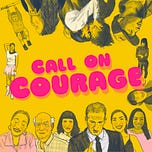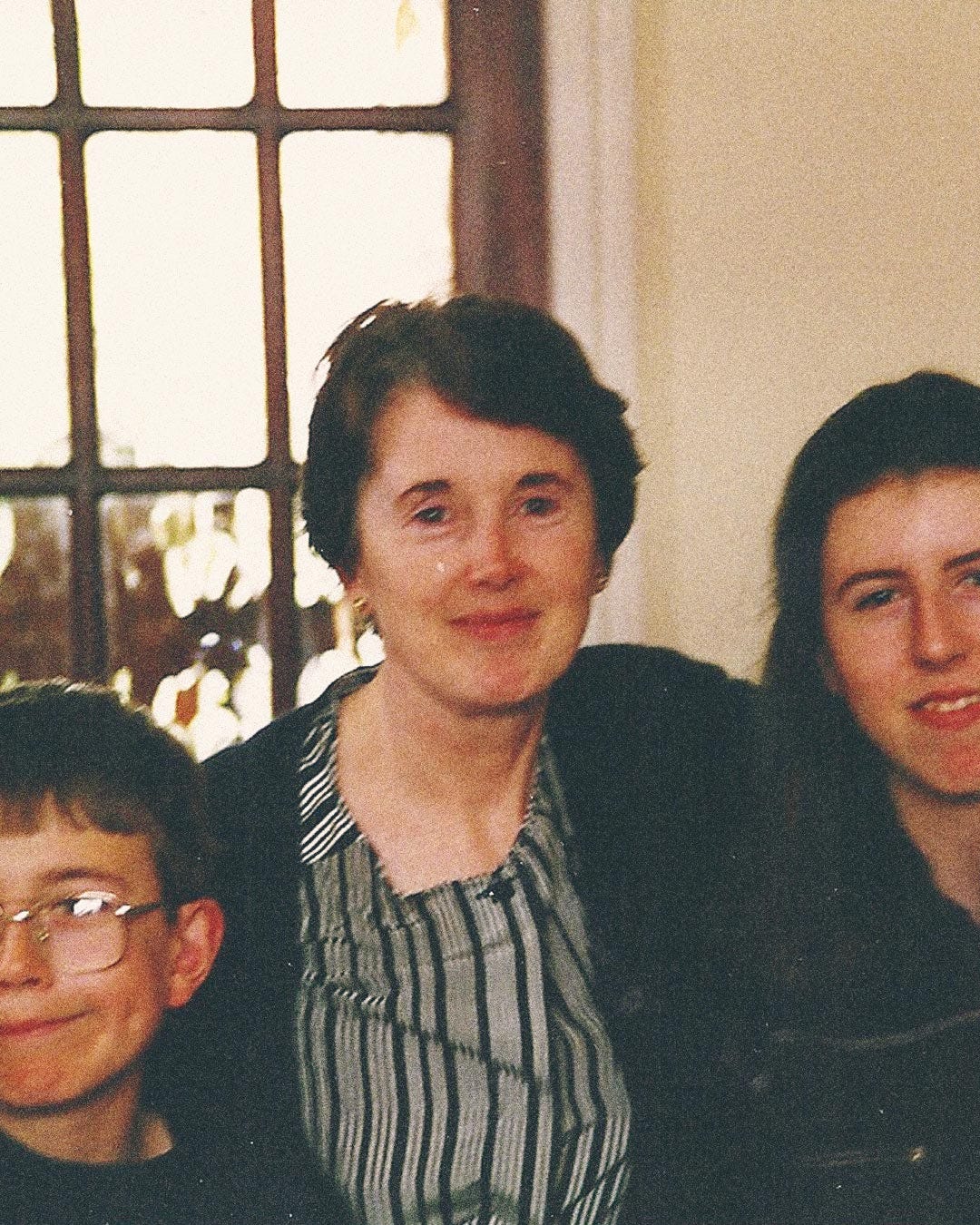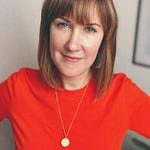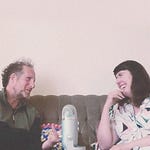When people ask me what does your Dad do, I say he worked on cancer cures. Not exactly in a lab or near the patients. But he was the guy who made the software that analysed the data that they test the new drugs on. Did I get that right Dad?
My Dad's story is one of extreme perseverance with work and turning round a tough financial situation. He barely had any work for a few years and decided to stop counting job applications after he hit 800 attempts. After that he just kept going until something changed. My Dad started over at 47, this is his understated take on what happened.
This transcript has been edited to include the highlights of our conversation.
Well, I am really excited about today's podcast episode because this is someone that's very close to me. He's agreed to chat about a number of different stories. It's none other than my Dad sitting with me today. Dad, thank you so much for doing this. There's so many things we can talk about. You're someone I see as naturally very courageous. You've made quite a lot of bold decisions with a number of things that you've done.
Rachael 17:07
You went into the slipstream of this career, being a programmer and really getting stuck into some interesting challenges. I want to fast forward a number of years - a really strong memory for me. There was a Tory rule that was going on and on. Major just won the general election. It was the early 90s. But interest rates were going bonkers. And what had been quite a stable job, you thought you’d have for years with Leyland Trucks or now Daf, came to an end quite quickly.
Paul Kearney 18:09
The problem was Thatcher - she wanted to sell off Leyland Trucks. Since the 1930s Leyland Trucks had not had any investments. Their profits had held up Jaguar, which had been a bit of sick part of the Leyland empire. And she was told by civil servants there's no way they could sell it. They needed investments. So she put in £4 million. And the Italians had been employed by the Russians to build a truck factory in a new city. And they built a new factory in Russia. The only thing they hadn't been able to put in was computers. So they acted as consultants. And they put in computers as the last layer into the new truck factory in Leyland. Identical stature. Good old Thatcher sold the damn thing off. And of course as programmers we had access to all the internal records, files and the order book. She sold it off to (Dutch company) DAF. We looked at the books internally. And to be honest with you, Leyland should have been taking over DAF. That would have meant Thatcher giving a government guarantee to Leyland for a period of five years, and she wasn't prepared to do that. The Dutch government were prepared to do that.
Rachael 20:54
So it was a very short sighted decision. I want to go into what actually happened to you on a personal level with that decision?
Paul Kearney 21:04
Yeah…
Rachael 21:07
This is the early 90s. So going back to I think, 1990 or ‘91 when that happened. I mean, can you set the scene for now what happens in the next few years for you?
Paul Kearney 21:24
Oh, then I was unemployed, unemployed for three years.
Rachael 21:29
And yeah, that was a lot of pressure.
Paul Kearney 21:33
Oh, yeah. That was immensely difficult.
Rachael 21:38
Can we talk about that time? What were some of the big challenges?
Paul Kearney 21:46
The big challenge was just blasting on because the job market was very, very, very poor at the time. And you were just hammering away at applications and getting rejection letters. Time after time after time.
Rachael 22:07
Again you slightly downplay that. But what was the amount of letters that you got?
Paul Kearney 22:13
I had to count the letters. Because the job centre needed proof I had applied for jobs in the previous week. So I actually counted, the number of letters I shoved out. And then rejection slips, I guess. And I got 800 rejection letters.
Rachael 22:47
I mean, how did you actually deal with that on a mental and psychological level? How did you actually cope with that?
Paul Kearney 22:57
Well, I think people have an image that the gates of heaven are pristine and pearly white. My image of the gates of heaven - that they’ve been bloody well kicked down by me with prayer! When the hell am I gonna get a job? Yeah. That’s the only thing that carries you through.
Rachael 23:21
It was prayer. Yeah. Yeah, absolutely. But there was a real level, even as a teenager, I have these memories that you were always in something challenging and financially very pressured. You knew you could get work. And you were quite a realist, because we knew coming from Preston who the main employers are in this neck of the woods! There isn't any big tech scene. And back in that era, there wasn't really a tech scene in the northwest to speak of. So you were very pragmatic. I would say that's when I saw this level of bravery that I hadn’t seen before…
Paul Kearney 24:11
The main employee here is BAE (British Aerospace). Yeah, so building the planes and things with ordnance which are gonna shoot down some civilians in Africa, or wherever.
Rachael 24:31
Tell me a bit about the journey of working out what to do next because you were unemployed at about 40.
Paul Kearney 24:47
Oh, I can't remember how old he was.
Rachael 24:51
Maybe mid 40s. So what was this plan of attack for what was next? What did that look like because you did try a couple of things, didn't you?
Paul Kearney 25:06
Well, I did the MBA at the Open University that was helpful. But I remember in the job centre they ran sessions on your CV. And they're very good actually because I completely revamped my CV. The new CV which I always use subsequently, the style of it. That triggered many more responses than the old one I had had. But I remember meeting, we had a, we'd all revamped our surveys. We had a meeting with everyone else. It was a whole pile of people who had been unemployed, and the management of the job centre. And they reviewed each others’ CVs. I put the fact that I’d spent eight years at Up Holland. And they all said, ‘Oh, you must take this out.’
Rachael 26:46
About being in the seminary?
Paul Kearney 26:49
They said employers will not want someone who takes a moral high ground and doesn't like possibly unethical things happening in the business. And okay, we had 800 rejection letters. But ironically, after three years, I remember I had a very bad case of laryngitis. And I was in bed just recovering. I had massive cold sores. I had a call from the (recruitment) agents who said was I available for an interview for a pharmaceutical company? ‘Yeah’ I said to him. Well, if a pharma company doesn't know about viruses and germs, I'm screwed. I wouldn't go to an interview like this normally. And so I went down to have the interview. It was a Muslim, Asma, a very intelligent, inquisitive Muslim. And I'm convinced the reason she gave me the interview was to find out how many heads this candidate for the priesthood had. So, in point of fact, it worked to my advantage and I was lucky because we hit it off immediately.
And in my previous work I had done lots of data validation of input streams and writing data validation languages. And her major problem was data validation. They had to validate this, and that was her big problem. And she went through one of these processes and I stopped her and said, I think you're making a pig's ear of these. I don't think there's any methodology behind what you're doing. I think there's a form of data validation methodology you can apply to this. And I went through that methodology and convinced them easily that I could hack that. And I got the contract and that put me in pharma. That led to, well, 25 years worth of employment in pharma…
Rachael 31:50
Once that connection with Asma had been struck, you did get into pharmaceuticals and things rapidly changed. So I want to talk about the literal day to day practicalities. Not necessarily the work itself, but what your lifestyle looked like. Before we jump into anything further - what was it like the first 12 months when you were doing the commutes?
Paul Kearney 32:28
That was a pain in the neck. I've grown to hate the M6. Just hacking up and down every weekend. Oh, total pain.
Rachael 32:43
It was quite knackering.
Paul Kearney 32:52
Preston to wherever. And of course, all the work was down South.
Rachael 33:52
What were some of the famous drugs or well known clinical trials you worked on?
Paul Kearney 34:46
Well, I remember the one outstanding drug was against prostate cancer. And we were testing it against the gold standard at the time. You're okay with prostate cancer until it metastasizes and goes through the whole body. And then you've got six months to live. And the thought was we were running a trial with 7000 patients, an international trial, over a seven and a half year period. And the thought was if we could improve people's life expectancy by 4.5 - 5%. And that will be good, right? And we did all the sums and whatever. And instead of improving by 4.5%, it improved by 43%. I had every manager about three levels above poring over my code, checking it for mistakes! They just couldn't believe the 43% improvement and then that became, obviously, the gold standard for prostate cancer.
Rachael 36:23
Just so people can understand your role in that. What does the programmer actually do that's related to a clinical trial? Why is this work so vital?
Paul Kearney 36:37
Clinical trials always need two questions to be answered. One is it efficacious? I mean, does it do what the medics hope it will do? And is it safe? All drugs have side effects. Are the side effects we see acceptable. We build the software to answer those questions.
Rachael 43:29
I feel that something important was purpose with you? Because I think you're someone that always struck me as being very aware of your purpose and the call on your life. Did you see that in that commercial environment?
Paul Kearney 43:50
I mean, it was providing for the family chiefly.
Rachael 44:00
Yeah, it's amazing.
Rachael 44:47
How do you define courage?
Paul Kearney 44:50
Oh, you’ve just got this persistence of carrying on. Regardless of whatever obstacles you may face, just blast on. Yeah, keep on doing this.



















Share this post